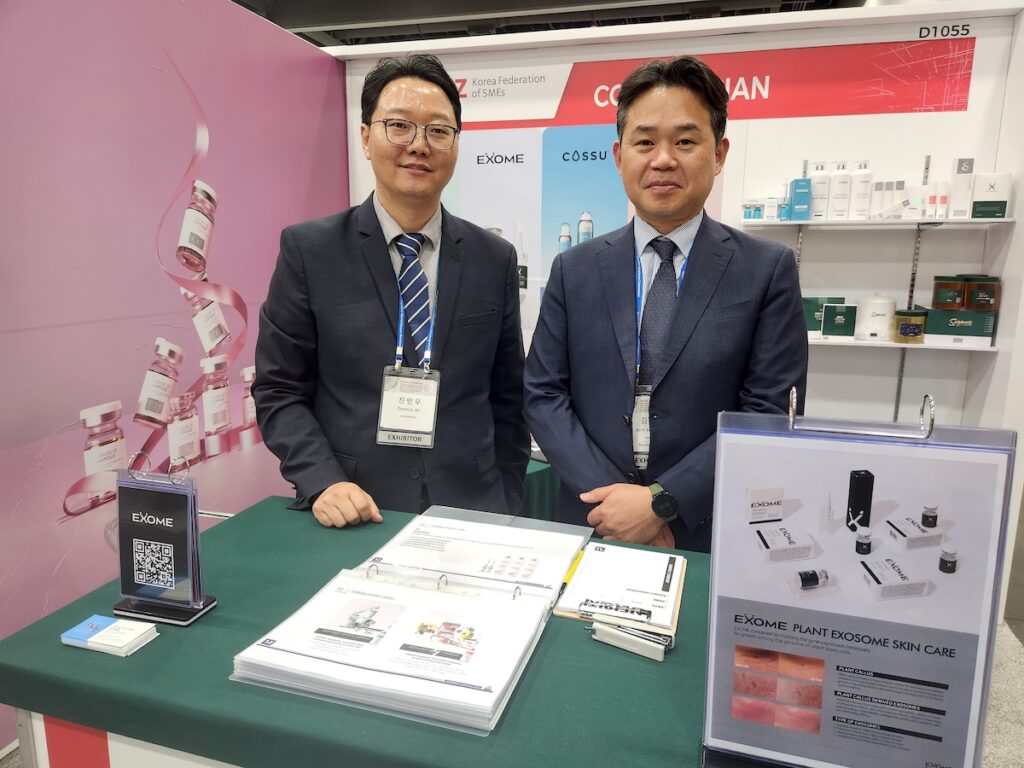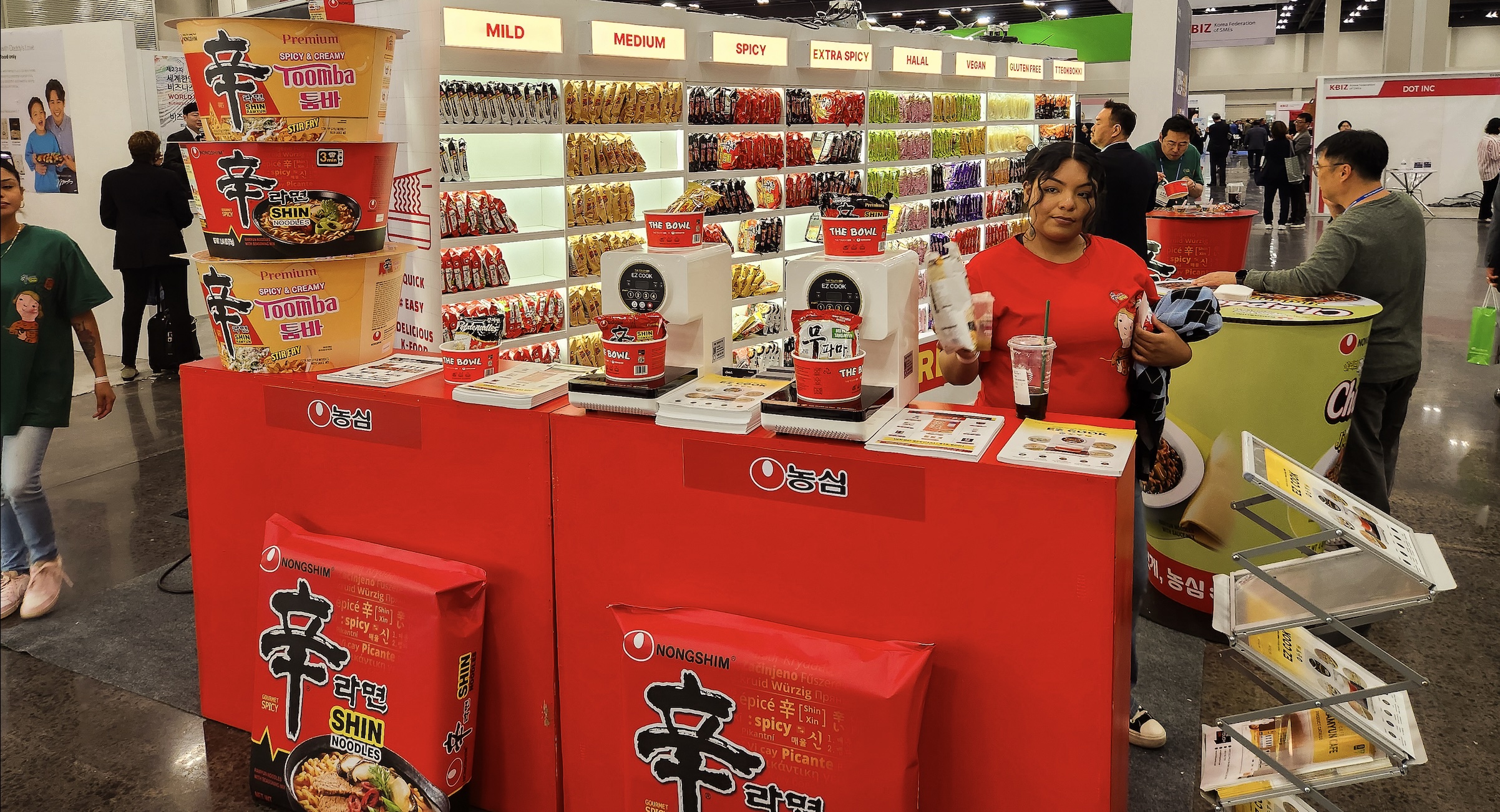DULUTH, Ga. – The “Seoul of the South,” that’s the nickname for Duluth, an Atlanta suburb home to one of the largest Korean American communities in the US. Thousands descended on the city earlier this month to get a peak at the latest in Korean consumer goods.
But beneath the general buzz event goers admitted to fears over President Donald Trump’s tariffs and what they could mean for the economy and their own businesses.
“We had a great deal with an American buyer a couple of years ago with a different cosmetic brand,” said Dennis Jin of Cosmedician, a South Korean company producing a line of skin care and other beauty products. “We are now pitching a new brand and products to the U.S., because America is always our dream market.”
South Korean beauty products have become all the rage in recent years. The sector is projected to draw in some $15.7 billion in global sales for South Korean companies this year.
The 2025 World Korean Business Convention (WKBC) was held April 17-19 at the Gas South Convention Center in downtown Duluth. The event drew some 400 businesses and more than 4,000 entrepreneurs from South Korea eager to seek out new and potentially lucrative business opportunities.
More than 20,000 people attended the three-day event, organized by the Overseas Koreans Agency of South Korea (OKA) and the Korean American Chamber of Commerce USA.
But Jin and other business reps interviewed for this story described a sense of confusion and uncertainty over Trump’s tariff policy, which have oscillated dramatically since his April 2 “Liberation Day” announcement imposing a blanket 10% tariff across the board, with higher or lower tariffs placed on countries based in part on their trade relationship with the U.S.

The highest tariffs were imposed on Chinese goods at 145%. Trump initially imposed a reciprocal 25% tariff on South Korean goods though he later brought the rate down to 10% for a 90-day period.
“I am wondering if our K-beauty products are subject to the tariffs,” Jin said. “How does it work? How much we need to pay? We are here to find answers.”
Unfortunately for Jin and others seeking clarity on US trade policy, answers were not readily on hand.
Kelly Loeffler, a former Georgia U.S. Senator and now head of the Small Business Administration (SBA), told a room of Korean business owners that her agency supports cross-border investments and trade. She also praised South Korean businesses as “helping drive America, from hospitality to retail to logistics and professional services.”
But her remarks steered clear of President Trump’s tariff policies, noting instead the president is “pushing to make the tax cuts permanent, to cut regulations, to unleash American energy, secure our borders, and stand up to foreign adversaries who’ve exploited the U.S.”
South Korean Prime Minister Han Duck-soo also avoided what was clearly the elephant in the room.
“Just last week, President Trump and I had a productive phone call, during which we reaffirmed our mutual commitment to work closely on enhancing economic cooperation and the trade balance,” he said in a prepared statement read by South Korea’s Minister of SME’s and Startups, Oh Young-ju.
In 2024 the U.S. saw its trade deficit with South Korea rise to $66 billion.
Han is South Korea’s acting president since Former President Yoon Suk Yeol’s impeachment following his declaration of martial law last year. The country is slated to hold elections June 3 and has ruled out reaching any comprehensive trade deal with the U.S. until after elections are held.
Gina Lee Pollit with the Korean American Chamber of Commerce USA said she is fielding a range of questions in the meantime.
“A lot of Korean investors have been asking about building and setting up plants in the U.S. What type of incentives and tax breaks are there for investors? How much can they save while avoiding tariffs,” she said, counting off some of the more common questions she’s been hearing.
“They want more information for investments in the U.S., thinking about tariffs,” she added.
South Korean companies have ramped up investments and manufacturing in the U.S. in recent years, with automaker Hyundai announcing in March that it would invest $21 billion, including $5.8 billion in a new steel plant in Louisiana expected to employ some 1,400 people.
Korean companies have also invested heavily in Georgia, including a Hyundai Motor Group EV plant, SK Battery, and Hanwha Qcell’s solar panel factory.
Trump has repeatedly justified his tariffs in part by claiming they will bring manufacturing back to the U.S. He called South Korea’s investments “a clear demonstration” that tariffs work.
And despite the uncertain business climate, deals were being made, including contracts with a local construction company to build two plants in Georgia, valued at $25 million and $20 million dollars, respectively, according to Korean American Chamber of Commerce USA.
Another Korean business, Oppane, which makes cheese-flavored baked sweet potato snacks, is looking to expand beyond their current customer base in the U.S., which includes the Korean grocery chain H-Mart. “Considering K-food’s popularity in the U.S.,” said one business rep, “I am confident that America will be our next dream market.”
Still, not everyone was as optimistic.
“Nothing is certain on the tariffs,” said Eung Ho Kim, the owner of a beauty supply company. “Tariff numbers change from when you go to sleep and when you wake up. How can we decide to invest in the U.S. if tariffs are not fixed?”





